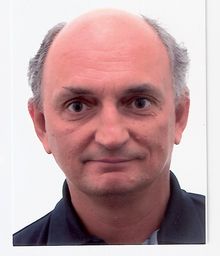Andreas Jentys

Researcher ID: D-4622-2009
ORCID: 0000-0001-5877-5042
Fields of Interest
The Research is aimed at the understanding of surface reactions and transport phenomena on meso structured, micro- and mesoporous oxides with acid/base or redox properties and supported metal catalysts used in catalytic gas and condensed phase reactions. Materials with specifically tailored functionality are prepared and their sorptive and catalytic properties are studied by combining in situ electron and vibrational spectroscopy with microkinetic experiments. Theoretical calculations on the structure are combined with X-ray absorption spectroscopy, which leads to an advanced understanding of complex (bimetallic) metal and metal oxide catalysts. Experimental setups are developed, which allow to investigate catalysts under carefully controlled reaction conditions in the gas and liquid phase and to monitor simultaneously the catalytic properties to ensure that the reaction conditions are comparable to those in laboratory reactors.
Curriculum Vitae
Andreas Jentys, born 1963 in Vienna, Austria studied Chemistry at the TU Wien and obtained his doctorate (Dr. techn.) in 1991. After postdoctoral study at the Royal Institution of Great Britain in 1992-1993 with Prof. Richard Catlow, he joined TU Wien as lecturer and was appointed Associate Professor in 1998. In 1999 he joined the group of Chemical Technology at the TU München as senior scientist (Privatdozent) and was appointed as Professor (apl.) in 2011.
He is author of over 200 papers and presented several invited lectures at international conferences. His research Interests are surface chemistry, sorption and catalysis, the development and application of in situ spectroscopy for characterization of solids and processes under reaction conditions, the design of novel catalytic active materials and reactors as well as the application of theoretical methods to describe materials and reactions in catalysis.